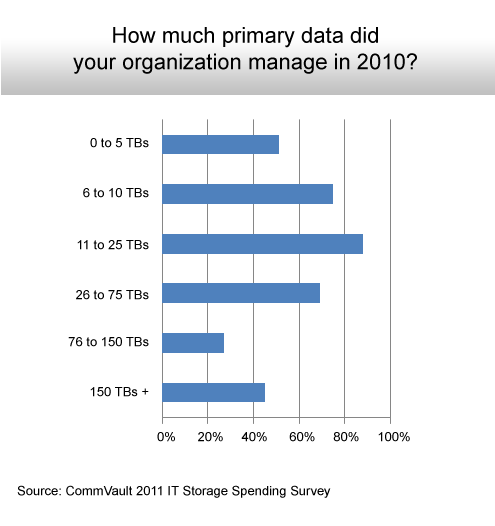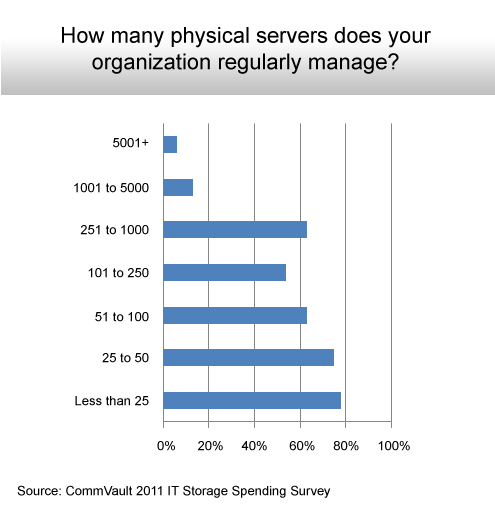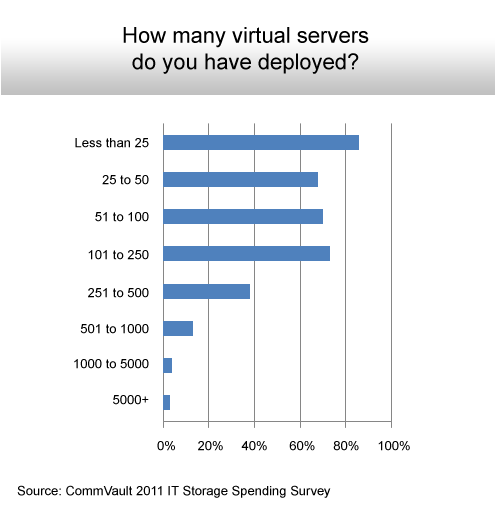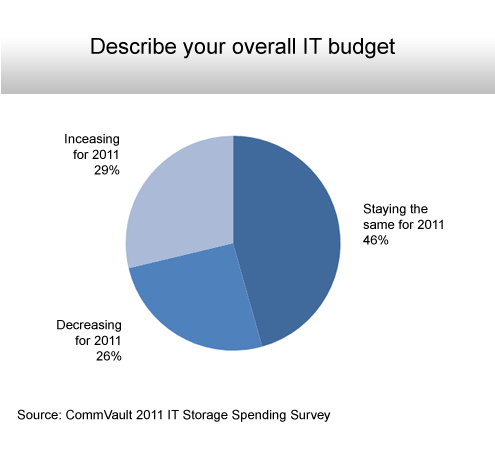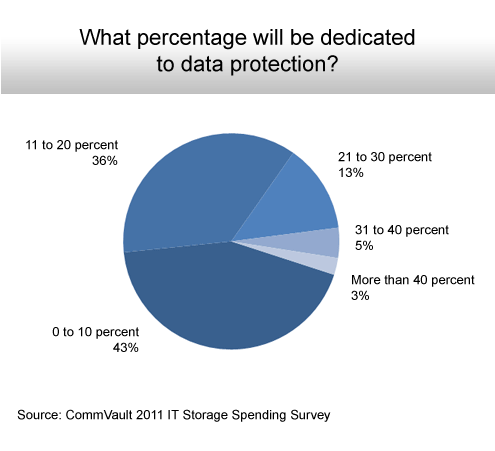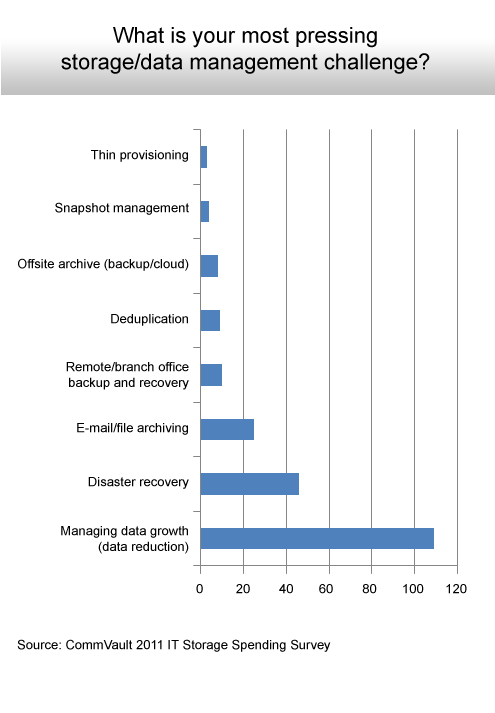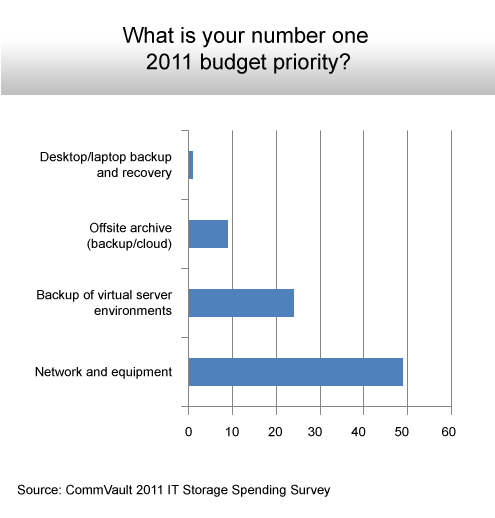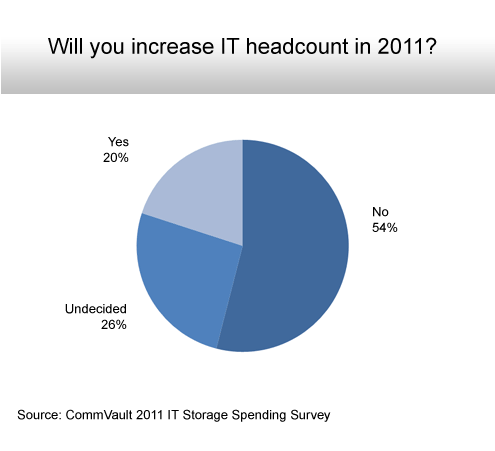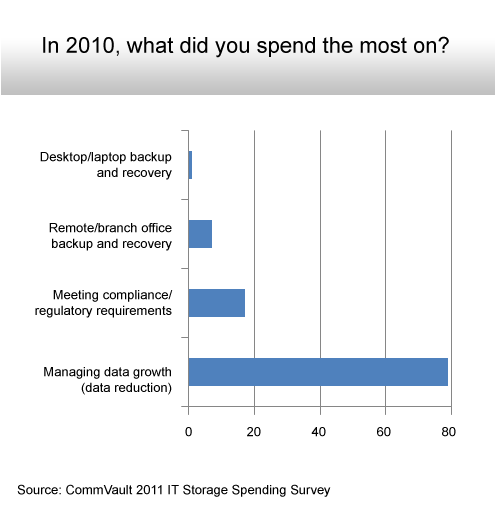IT organizations are starting to come to the realization that they can no longer afford to throw hardware at the problem – data needs to be proactively managed.
A recent survey of 350 customers of CommVault, a provider of data storage systems, concerning their data storage budget priorities for 2011, finds that the number one problem they face is the growth of data within their organizations. The challenge they face more acutely in 2011 is that their IT budgets are only going to grow modestly at best.
That means that in many cases IT organizations for the first time will have to put into place data management strategies that not only aggressively eliminate duplicate data, but also provide the foundation they need for dealing with a host of other issues, including cloud computing, security and compliance.
Jeff Dorr, senior product marketing manager for CommVault, says IT organizations are especially interested in tiered storage strategies that will allow them to move as much data as possible to the least expensive place it can be stored so long as that data is readily accessible when they need it. In some instances, that may involve cloud-based storage or an on-premise archive that makes use of inexpensive disk-based storage.
Ultimately, Dorr says IT organizations need to concentrate more on managing data, rather than just on the storage systems that house the data. That includes aggressively exploring the root cause of the data explosions within their organization, he says.
Many IT organizations never really paid enough attention to data management over the years because it was simpler to acquire additional servers and storage to process and store data. But as the economy changed and interest in new approaches to cloud computing emerged, many are discovering a pressing need to manage their data.
In the past, IT organizations also tended to manage all data equally. But with limited resources available, Dorr says IT organizations are going to have to start developing polices that give higher levels of priority to data that offers immediate value to the business versus data that is being stored to meet compliance requirements.
The good news, says Dorr, is that new technologies that help automate the data management process are starting to emerge. The bad news is that in many cases these new technologies will not only take time to deploy and master, they will also require an allocation of limited IT budget resources.
Click through for results from a CommVault survey on storage spending.
The majority are in the 6 to 75 TB range.
Servers everywhere.
Most are under 100.
The majority are flat to increasing.
The vast majority are under 20 percent.
Storage growth is out of control.
IT infrastructure tops the list.
Odds are slim.
Data storage growth, by a wide margin.
Made do with existing network infrastructure.



